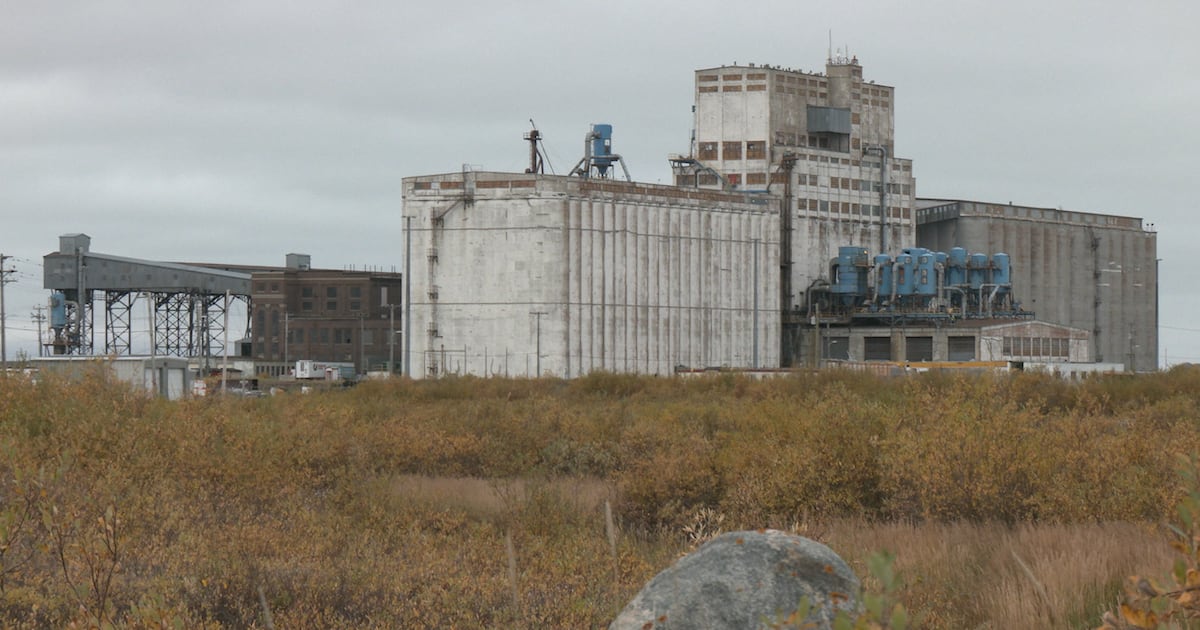Top Stories
Researchers Warn: Hudson Bay Faces Environmental Crisis Amid Melting Ice

URGENT UPDATE: Climate change is accelerating ice melt in Hudson Bay, exposing new shipping routes and triggering significant environmental risks, researchers from the University of Manitoba warn. This alarming situation could lead to year-round shipping access, impacting not just the local economy in Churchill, Manitoba, but also the fragile marine ecosystems dependent on the region’s ice.
New reports confirm that ice cover in Hudson Bay has been diminishing at an unprecedented rate, forcing experts to reconsider the implications of increased ship traffic. The Churchill Marine Observatory (CMO), established to study these pressing issues, is at the forefront of this critical research. “We’re not just observant based, we’re actually doing studies to address challenges associated with a rapidly opening Hudson Bay,” said Fei Wang, the CMO’s director.
With shipping lanes currently available for only four months of the year, Wang’s team is investigating the potential to expand access to five or six months. “In the near future, Hudson Bay could be essentially ice-free during winter months,” he added, highlighting the dire consequences for marine life including beluga whales and polar bears.
The melting ice not only presents economic opportunities but also raises significant environmental concerns. Increased vessel traffic threatens to escalate the risk of oil spills, particularly in colder waters where clean-up efforts are more complex. “We cannot solely rely on microbial activity to respond to oil,” Wang emphasized. Researchers are focused on developing technologies to mitigate these potential disasters, as the region braces for the implications of climate change.
Churchill, a town that thrives on ecotourism, is now at a crossroads. Local resident Joe Stover expressed concerns over the balance between development and environmental protection: “If the proper steps aren’t taken, any impact on marine life would negatively affect the community.”
The urgency of this situation has caught the attention of national leaders. Recently, Prime Minister Mark Carney announced a series of nation-building projects, with the expansion of the Port of Churchill listed for further development. While the port’s expansion promises a boost to local trade, many, including Stover, are relieved it was not prioritized in the initial wave of projects. “There is so much to figure out in terms of the impact,” he stated.
On the economic front, Chris Avery, President and CEO of Arctic Gateway Group, which owns the port, highlighted the strategic advantages of year-round shipping routes. “It provides a great option for Canadian exports to global markets,” he stated, noting the port’s role in shipping critical minerals to Europe and potentially to regions as far as the Middle East and Africa.
As the situation unfolds, researchers urge a collaborative approach that integrates scientific findings with Indigenous knowledge to ensure that development does not come at the expense of the environment. The stakes are high, as the future of Hudson Bay hangs in the balance amid these rapid changes.
Immediate action and thorough research are crucial in addressing the challenges posed by climate change in this pivotal region. The eyes of the world are on Hudson Bay as researchers strive to uncover the consequences of a warming Arctic and its impact on both local ecosystems and global trade.
Stay tuned for more updates as this developing story continues to unfold.
-

 Politics4 weeks ago
Politics4 weeks agoSecwepemc First Nation Seeks Aboriginal Title Over Kamloops Area
-

 World5 months ago
World5 months agoScientists Unearth Ancient Antarctic Ice to Unlock Climate Secrets
-

 Entertainment5 months ago
Entertainment5 months agoTrump and McCormick to Announce $70 Billion Energy Investments
-

 Science5 months ago
Science5 months agoFour Astronauts Return to Earth After International Space Station Mission
-

 Lifestyle5 months ago
Lifestyle5 months agoTransLink Launches Food Truck Program to Boost Revenue in Vancouver
-

 Technology3 months ago
Technology3 months agoApple Notes Enhances Functionality with Markdown Support in macOS 26
-

 Lifestyle3 months ago
Lifestyle3 months agoManitoba’s Burger Champion Shines Again Amid Dining Innovations
-

 Top Stories2 months ago
Top Stories2 months agoUrgent Update: Fatal Crash on Highway 99 Claims Life of Pitt Meadows Man
-

 Politics4 months ago
Politics4 months agoUkrainian Tennis Star Elina Svitolina Faces Death Threats Online
-

 Sports5 months ago
Sports5 months agoSearch Underway for Missing Hunter Amid Hokkaido Bear Emergency
-

 Politics5 months ago
Politics5 months agoCarney Engages First Nations Leaders at Development Law Summit
-

 Technology5 months ago
Technology5 months agoFrosthaven Launches Early Access on July 31, 2025




















